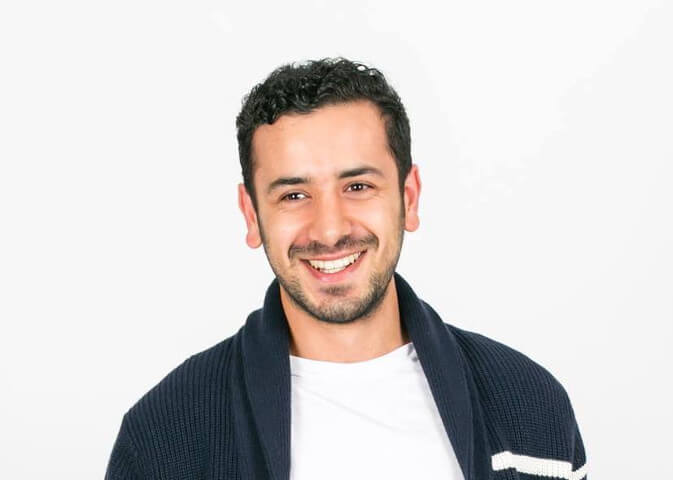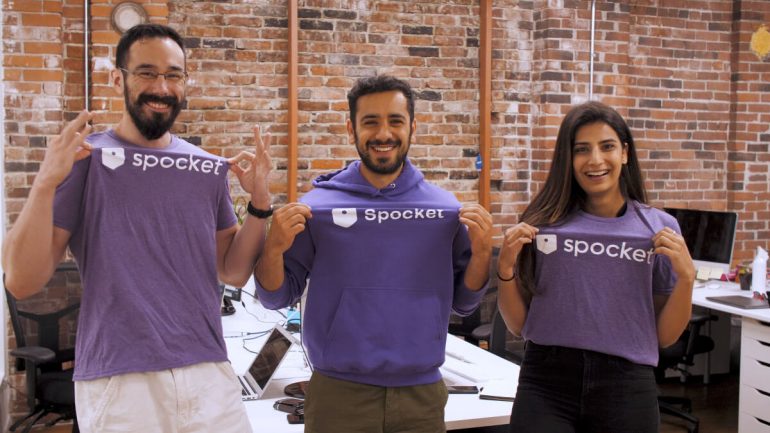Like most entrepreneurs, Saba Mohebpour founded his company out of a problem he experienced himself.
While trying to open his own ecommerce shop in January 2017, Mohebpour was reaching out to suppliers to get their products in his store with 20 percent of the profit going to him, and the rest to suppliers. The model, called dropshipping, provides advantages for ecommerce businesses that don’t want to take on the cost of shipping, housing inventory, and the risk of buying hundreds of products in bulk at a discount that don’t end up performing well.
Despite the benefits, Mohebpour found the process time-consuming, as he also had to manually source product information and images. “If I wanted to do it one by one, it would take months,” he said. “If I was starting to sell those products and my suppliers were going out of stock, there was no way that I could find out. There was the problem of sending the money to them. There was a problem of sending customer information to them.”
“One of the huge advantages for both online and physical retailers, is that there’s no upfront costs, and you don’t have to buy any products in bulk to get a discount.”
– Saba Mohebpour, CEO of Spocket
That spawned the idea for Vancouver-based Spocket, which just closed a $1.5 million round. Spocket allows Shopify retailers to dropship EU and US products, and post items on their stores with one click. Retailers can browse and order product samples from the Spocket dashboard, offer branded invoicing, and get discounts on products.
“One of the huge advantages for both online and physical retailers, is that there’s no upfront costs, and you don’t have to buy any products in bulk to get a discount. They don’t even need to buy a product, they sell it, and when they sell it, we process the orders for them,” said Mohebpour.
Investors in the round include Mistral Venture Partners, 7 Gate Ventures, Panache Ventures, and the Plug and Play accelerator. The company plans to use the funding to hire an additional seven people to its team, and spend on marketing and growth. For the platform, growth means expanding beyond Shopify to include WooCommerce and Instagram, and allowing users to build their own products through Spocket.
“We invested in Spocket because they are the best-of-breed solution in the drop shipping space,” said Mike Scanlin, venture partner at Mistral and board member at Spocket. “Their easy-to-use platform lets anyone create a store and be in the e-commerce business within minutes, with no inventory required. By sourcing mainly from suppliers in North America and Europe, they’ve also addressed the quality and shipping issues that plague most of the other drop shipping solutions. We’re also very impressed with Saba and his team, who were able to onboard tens of thousands of stores onto their platform in a very short time and with limited resources.”

Launched in 2017, the company had been accepted to the Seattle Techstars program in December, but Mohebpour himself couldn’t attend—while he’s lived in Vancouver since 2012, Mohebpour was an Iranian citizen at the time the company was accepted, so his team attended on the company’s behalf.
However, it wasn’t the first time Mohebpour had been faced with hardship for who he is. Mohebpour moved to Canada in the first place because his family is Baha’i, a religious minority in Iran banned from going to university. While Mohebpour was finishing up his pre-med program at the University of British Columbia in 2014, he couldn’t move on to med school due to his international student status.
“I was actually watching this YouTube video about this 17-year-old who built an app and sold it to Yahoo, and he did it himself. I was thinking that night, if a 17-year-old guy can program, and make apps, maybe I can do it as well,” he said. “That night I started programming, and within a week I fell in love with it…I pretty much just skipped all my classes in the last year and sat in my dorm programming.”
He built an app in Vancouver called Venchat, and it was a platform that was doing well, but, “We didn’t have money to pay for the server so we shut it down; we didn’t know that there are investors that give you money. So we shut it down, but after that I had enough knowledge about marketplaces and ecommerce to start building a new one.”
Mohebpour has since received his permanent residency in Canada, and said that even if he had gone to Seattle for Techstars he’d still choose to build from Vancouver. He noted that a vast majority of this funding round was Canadian.
“I’ve been in Vancouver for the past six years and Vancouver is my home,” he said. “The tech scene in Vancouver is growing really fast, we’ve seen really great companies, really great number of talent growing here, lots of companies like Amazon expanding in Vancouver.”


